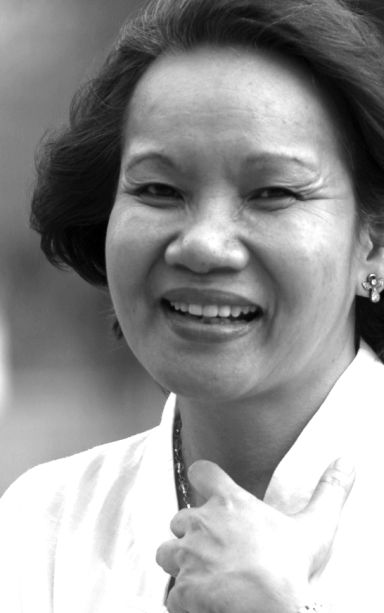As we enter Women’s Month we celebrate the successful efforts of women as they work for economic empowerment. Every time I encountered them — in front of SM City, at the gate of Queen City Gardens on All Saints’ Day, and during Women’s Month celebrations — I always walked away with at least two of their products, a coin purse, a sling bag, or a pencil case.
I couldn’t resist buying because their products looked really durable and were sold at very affordable prices. In fact, I usually bought several items so that I would have a supply to give away to friends on special occasions.
Upon having formalized their group.
They use the word RITAZO as a guide for the values they want to promote: respect, integrity, trust, acceptance, zeal, optimism. Their stated mission is “to work to uphold sustainable livelihood; to build the strong family, community, and country.
We got to know more about them last week in LAW Center Inc.’s episode of “Sa Mata sa Kababayen-an” in CCTN. They started small with P3000 (for zippers) and an old style sewing machine in 2011.
With their earnings they invested in a high-speed sewing machine.
Their main raw material were scraps, retazo, provided by Dedon, a German furniture exporter. That excited me because while that was great contribution to their enterprise it was also supporting efforts towards zero waste.
They have patterns for their different products. Among them are cutters and sewers. Regularly they have trainings. Every week they hold meetings to thresh out production as well as personal problems.
They have a bookkeeper. And their leader takes care of marketing. A member has been assigned to quality control.
Their sales peak during the Christmas season as well as in March, Women’s Month. LAW Center Inc. has been connecting with Rotary Club of Cebu Gloria Maris, an all-female chapter of Rotary. This brought the group into the malls as well as to five star hotels.
Foreign guests were attracted to their products but common people such as hotel staff and mall security guards bought their wares because there were coin purses sold for as low as 10 pesos.
They also got external orders from Australia because they displayed their products in Shopwise.
Watching them, I was gladdened by the sense of fulfillment that their participation in this group enterprise provided. They pointed out that their husbands had limited incomes as security guard, farmer, construction-worker.
One commented that her children, being aware of their mothers’ support for their schooling, were motivated to be more diligent in school. Joining the enterprise made her secure funds for marketing and paying water and electricity bills.
Membership in the group encouraged them to be more organized in their homes for they had to see to it that someone was in charge when she left for work.
Program anchor Atty. Virginia Palanca-Santiago noting that the ritazos arrived in the work place as a mix in various sizes and colors, inquired if out-of-school youth could join the group to assist in the classification of the materials.
When she inquired about their workplace and learned that they were renting the place, she wondered whether the city government of Mandaue could provide them space for such an admirable undertaking. The exchange was beautiful.
The group expressed openness to assist the community; Atty. Palanca-Santiago explored the idea of the community supporting the women.
The program was indeed very educational.
It was a reminder of the realities of families in the margins of our urban communities. For women in the third world the challenge of economic survival is real.
When equal pay for equal work in the formal sector is not provided because they say women’s earnings are used for trivial things; such justification does not jive with actual realities.
Females have been very effective, efficient entrepreneurs.
We are very grateful to Maylin Ligad, Ruby Tayasan, Leonila S. Cornecio, Mirope T. Ablelle and Dolorosa Melgar for being with us to share their story and assist in our education regarding women entrepreneurship.
